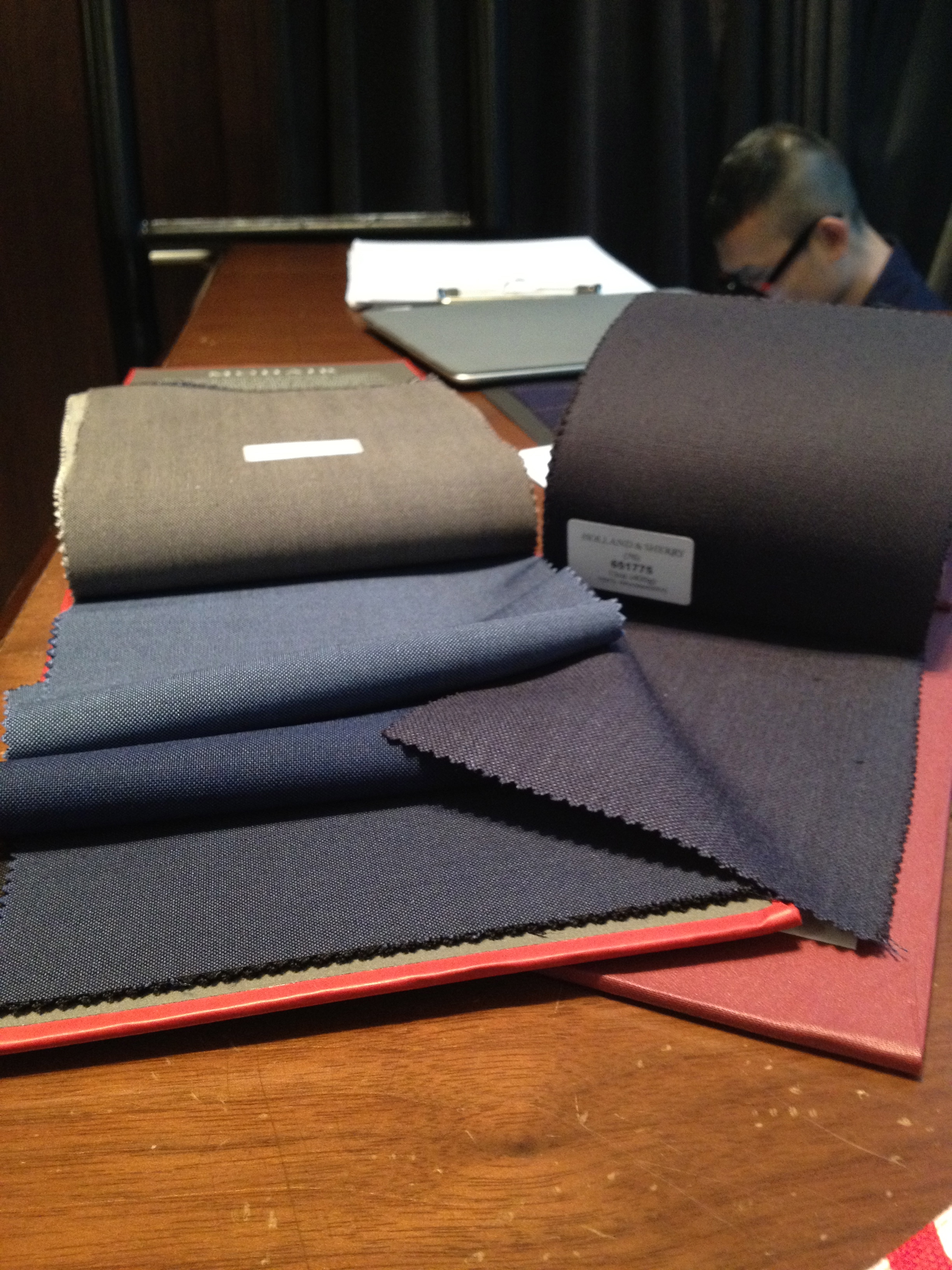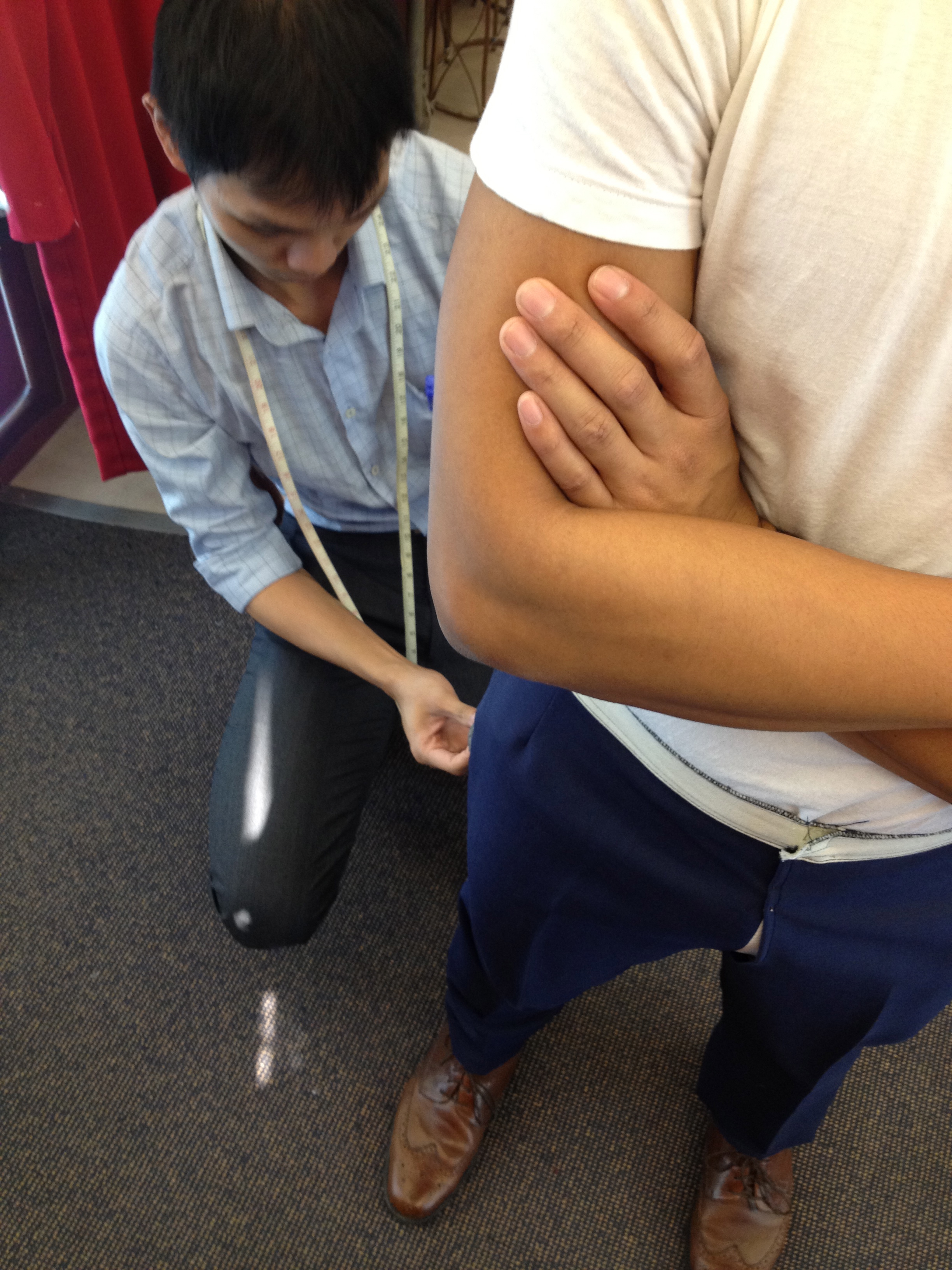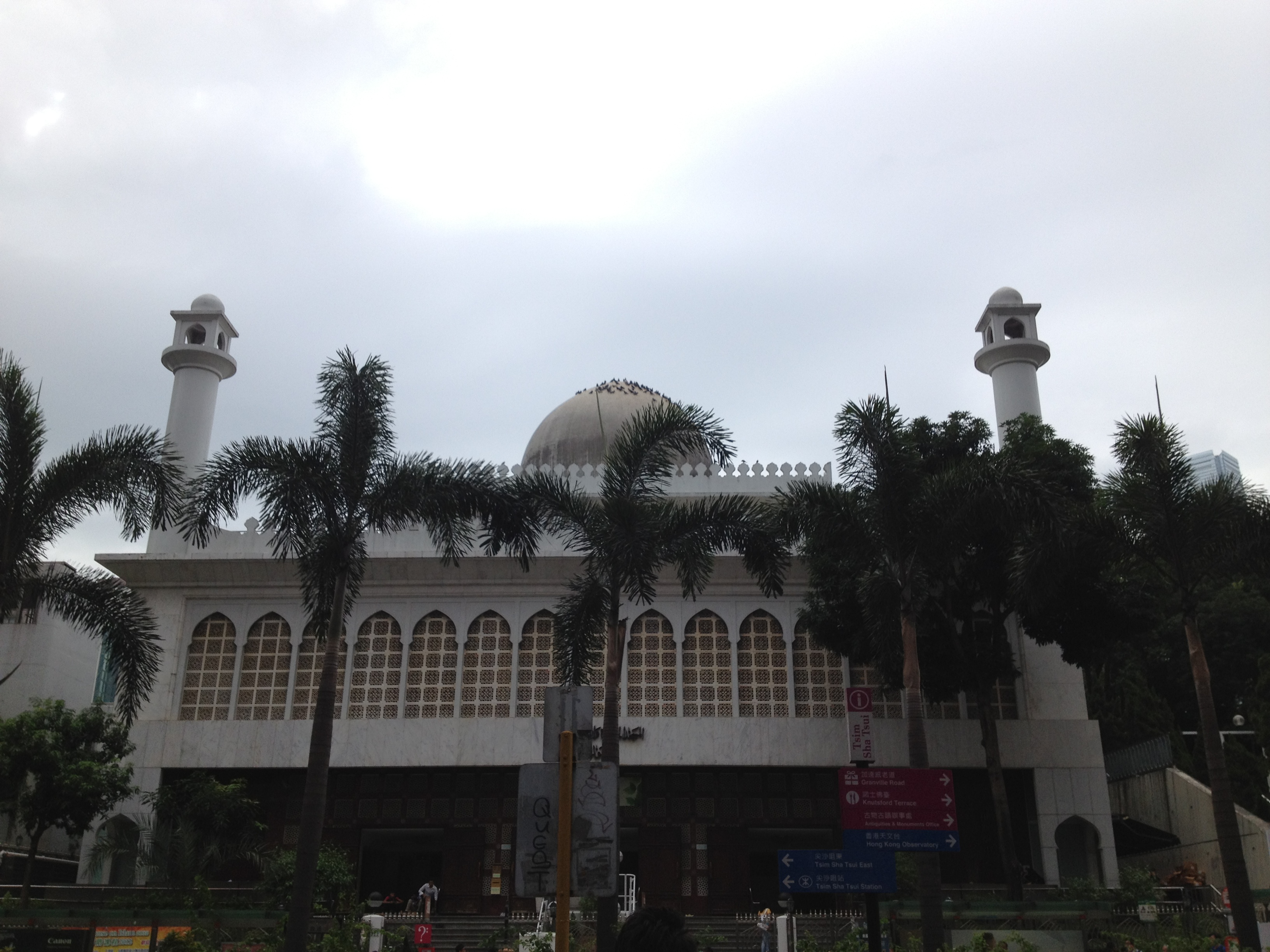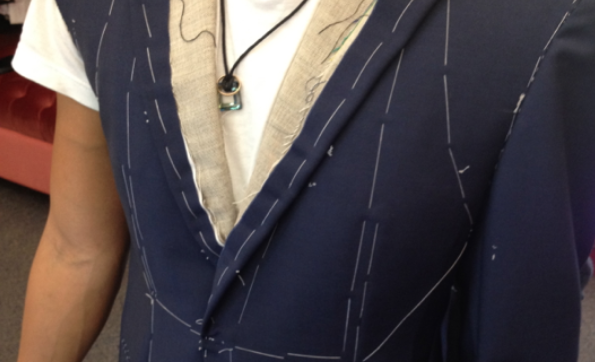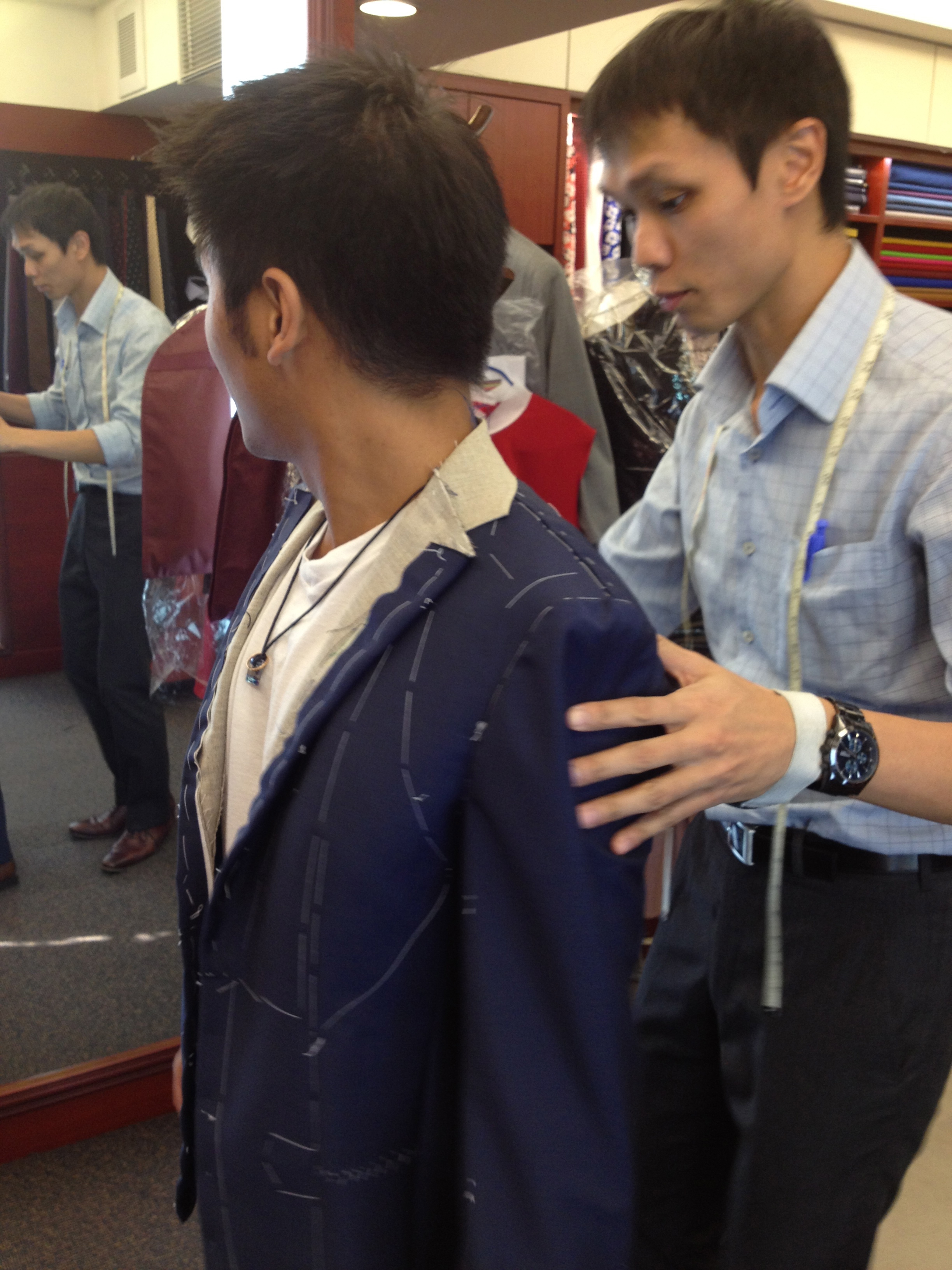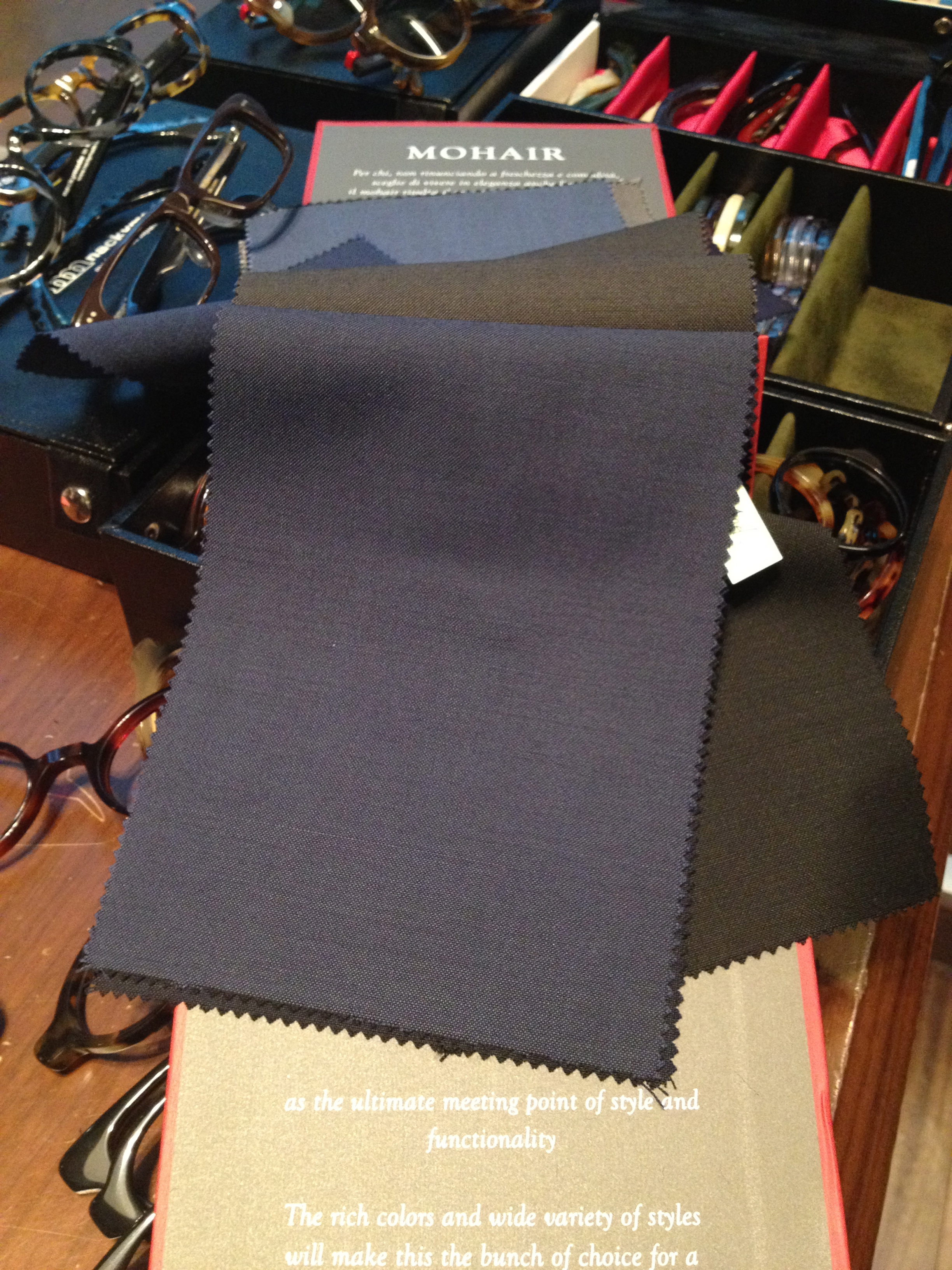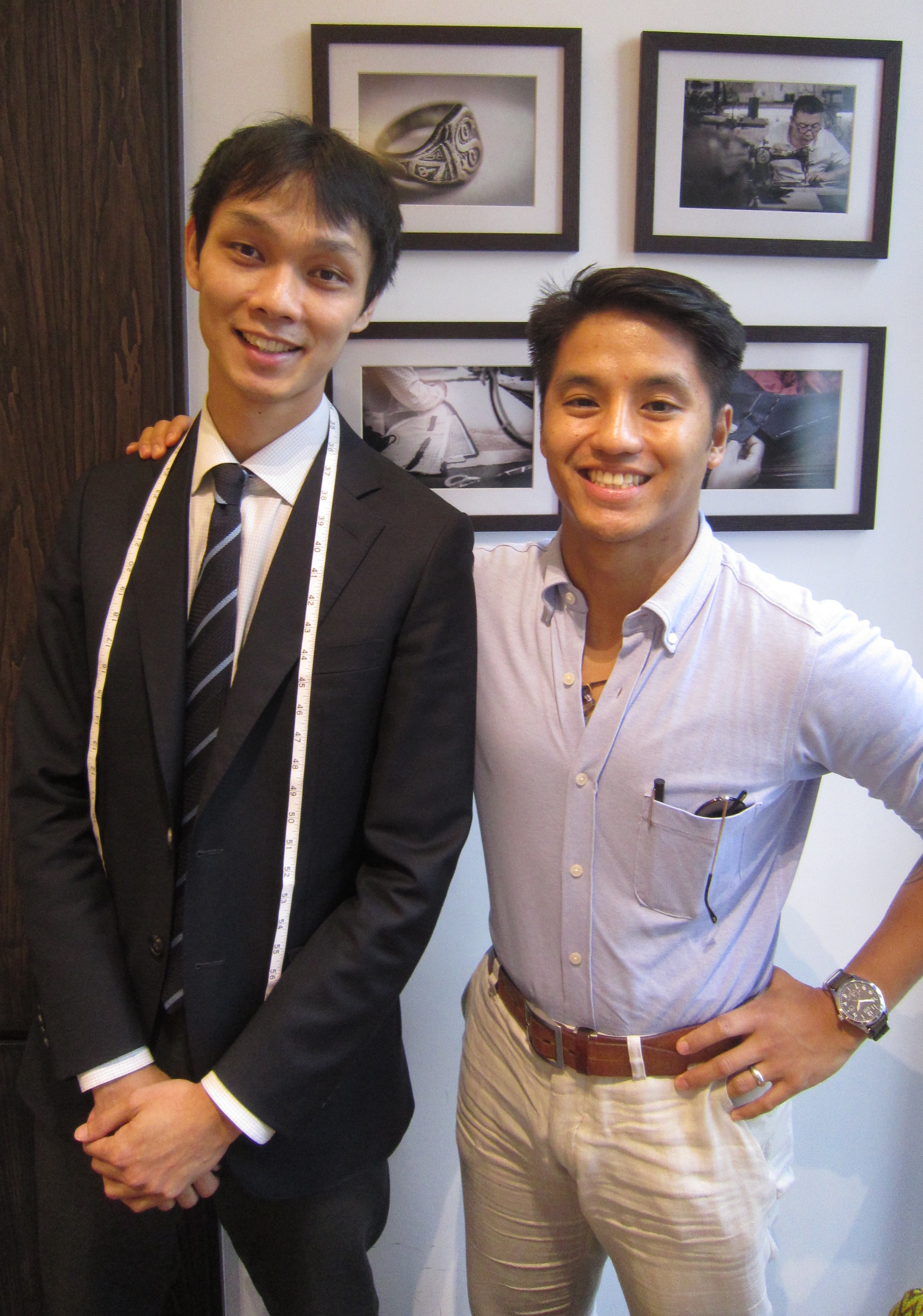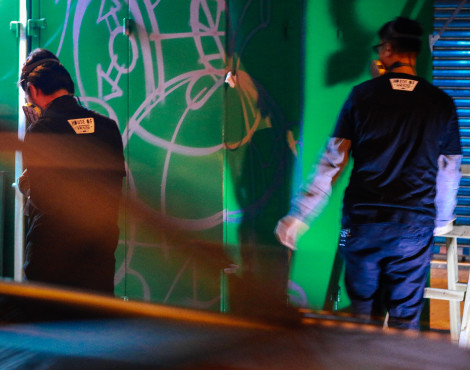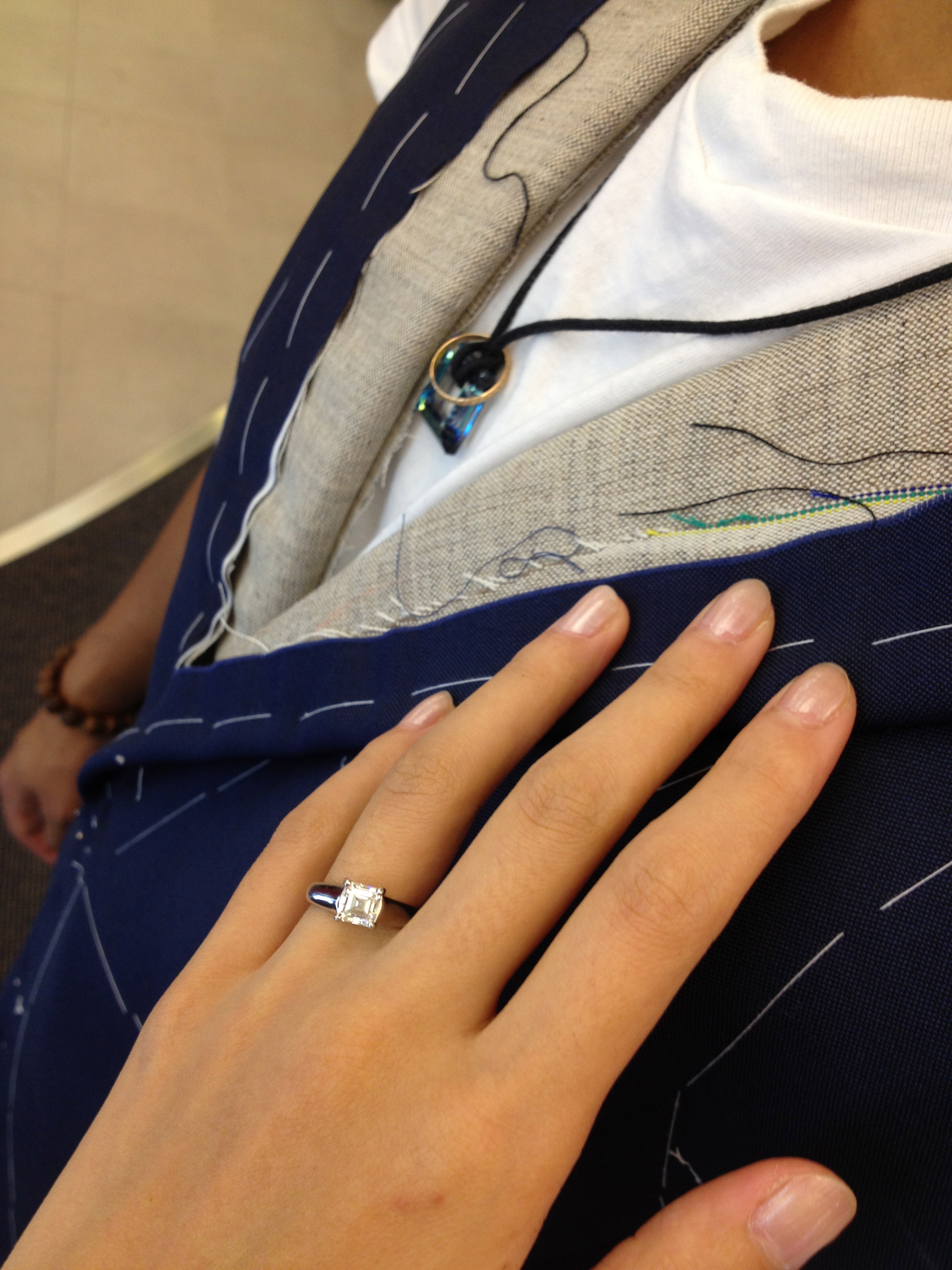 A recent article attributed the punctuality of the Hong Kong subway system to an algorithm. This single calculation pattern is responsible for moving 5.2 million people in a single day with a 99.9% on-time record. Mechanically speaking, the Hong Kong MTR operates precisely like a stopwatch.
A recent article attributed the punctuality of the Hong Kong subway system to an algorithm. This single calculation pattern is responsible for moving 5.2 million people in a single day with a 99.9% on-time record. Mechanically speaking, the Hong Kong MTR operates precisely like a stopwatch.
As its passengers, we must move from turnstile to train queue with reciprocal efficiency; keep the stopwatch perfectly on time. If there is a queue, it is maintained. If there is an empty seat, it is filled. If you are standing on the escalator, it is on the designated side to allow others to pass. Take your time if you wish, but never others’.
The twenty-four hour Hong Kong suit is a product of this pace. Men and women who fly through this city to reach every corner of the globe, and on a layover can get measurements at Saturday lunch for a finished suit at Sunday brunch. This seems to be the selling point for most tailors in this city, and a buying point for most tourists, myself included. In the age of download speeds and same-day delivery, how can one deny the allure of an in & out custom-made suit?
Dik Lam is a gentleman who would rather take time to get your measurements right. Looking out the window at the pedestrians and Porsches that zip along Queen’s Road Central, Dik speaks just above a whisper at the waiting couch of W.W. Chan & Sons, where he has rewarded the patience of customers throughout his ten-year career as a tailor.
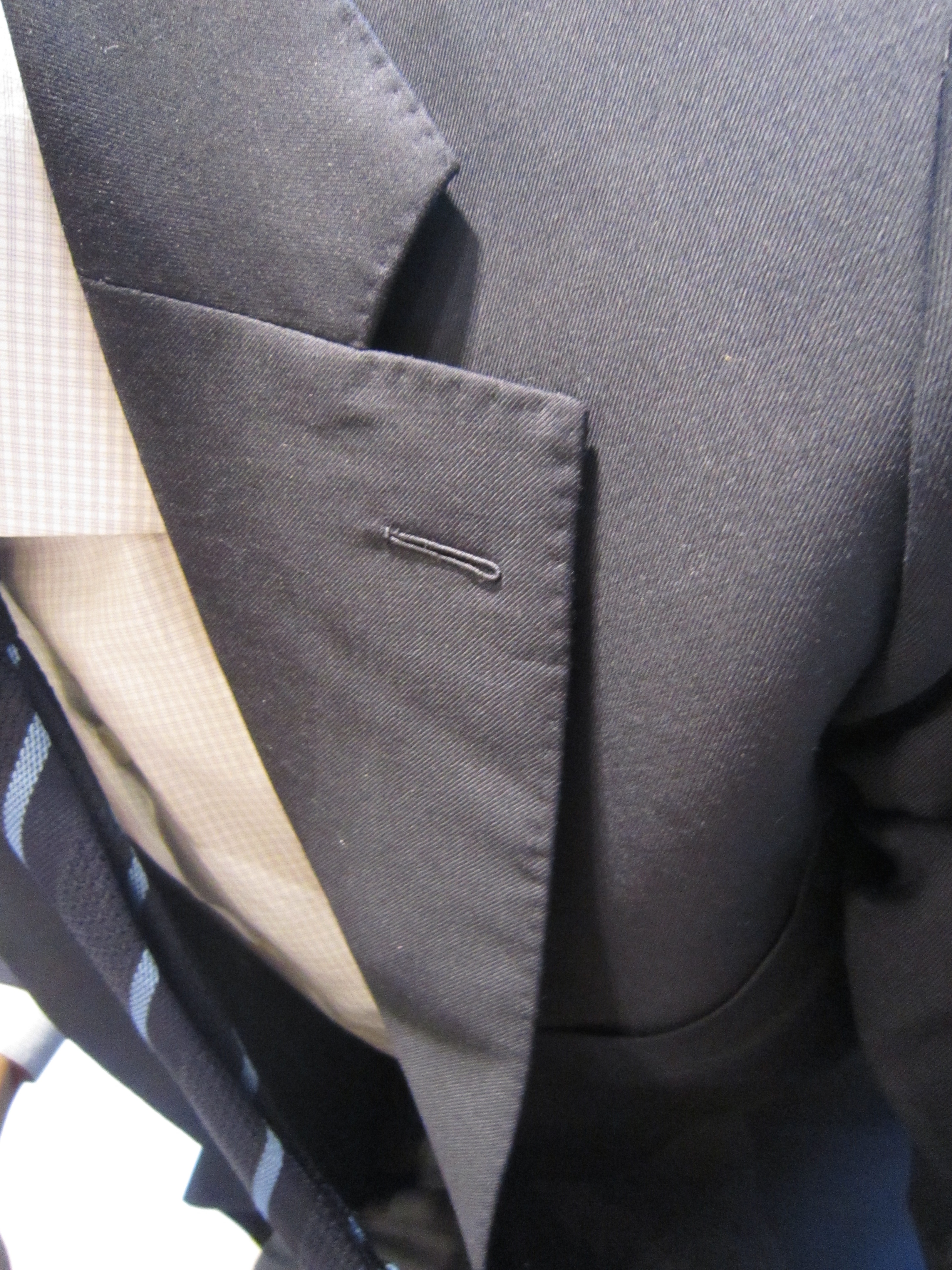 What kind of time? “The lapel buttonhole is stitched by hand for three hours,” he provided.
What kind of time? “The lapel buttonhole is stitched by hand for three hours,” he provided.
My acquaintance with Dik began two years ago, when I commissioned my wedding suit at The Armoury. Owner Alan See and his sartorial wisdom pointed towards a three-piece in navy mohair to mitigate my sweat rate, which would be called upon at the altar. Three weeks later, my first fitting with Dik taught me what the suit making process is supposed to be.
With the basic trousers and torso of the jacket on, I stood at the mirror, and Dik studied. He pointed, considered, and after a few exchanged words, he began his chalk lines and pin pushes.
“We have to make it perfect little by little,” he later explained.
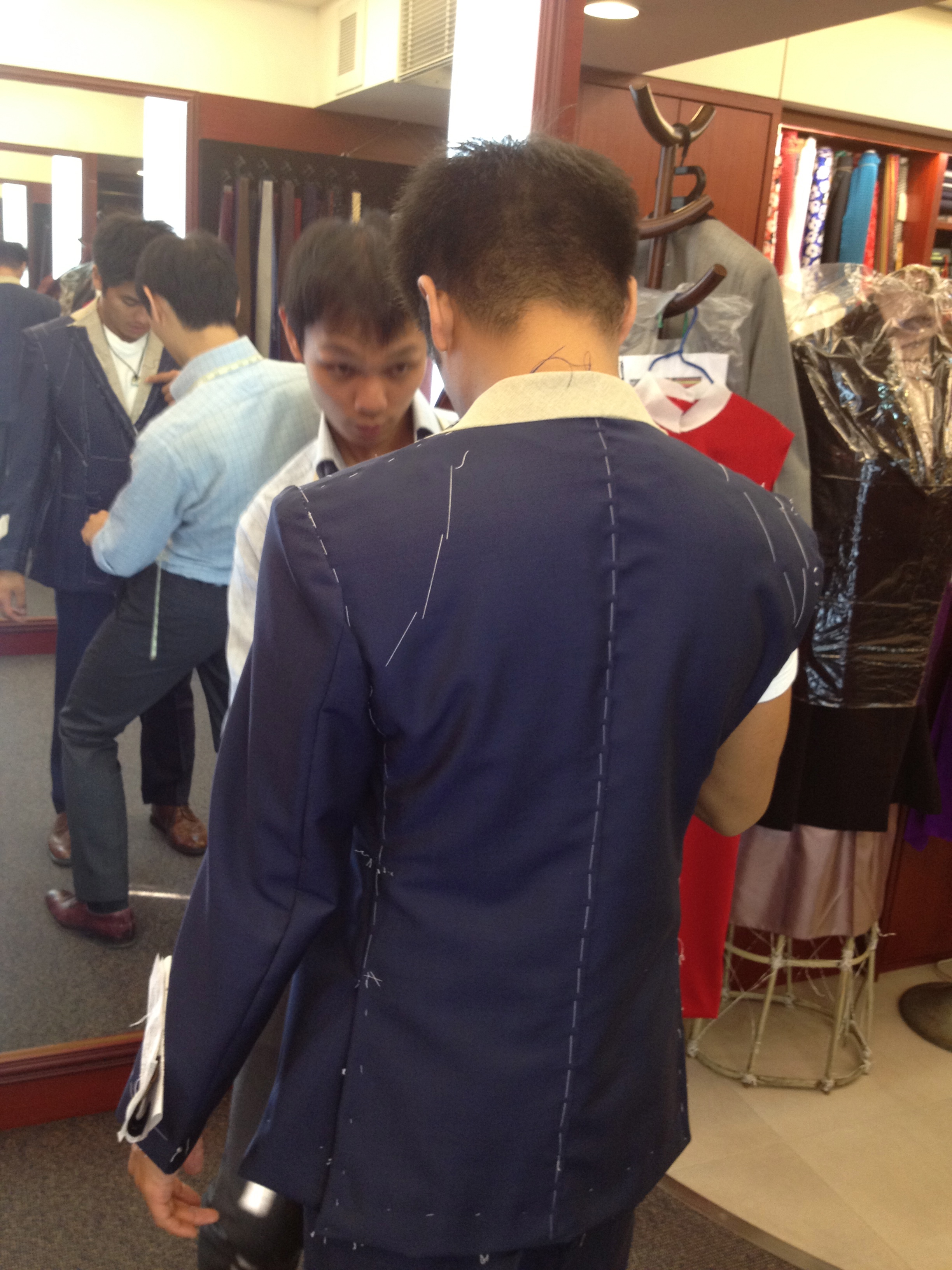 Dik paced around numerous times, evaluating my silhouette from every angle. With our height difference, he crouched and squatted to meet my frame closely. The pace at which he worked was deliberate. No second of our thirty-minute appointment went to waste.
Dik paced around numerous times, evaluating my silhouette from every angle. With our height difference, he crouched and squatted to meet my frame closely. The pace at which he worked was deliberate. No second of our thirty-minute appointment went to waste.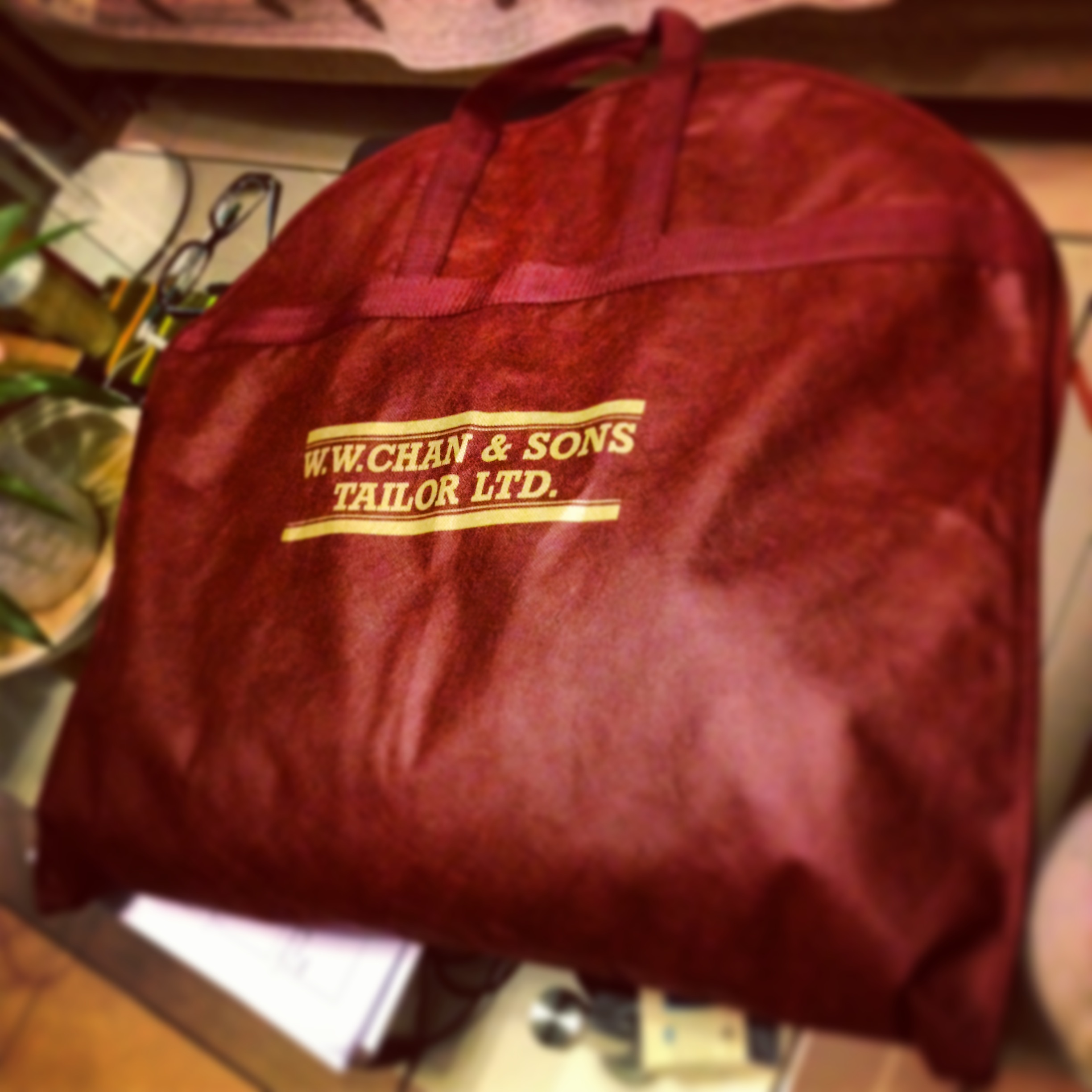
Two more fittings later, adjustments evaluated and reworked, Dik’s work was complete. In the time it took to order eighty 24-hour suits, I walked home with the most important uniform in my life. These are the moments that prove the true worth of a good suit. These experiences, for all of Hong Kong’s rich history in tailoring, are descendants of a dying art form.
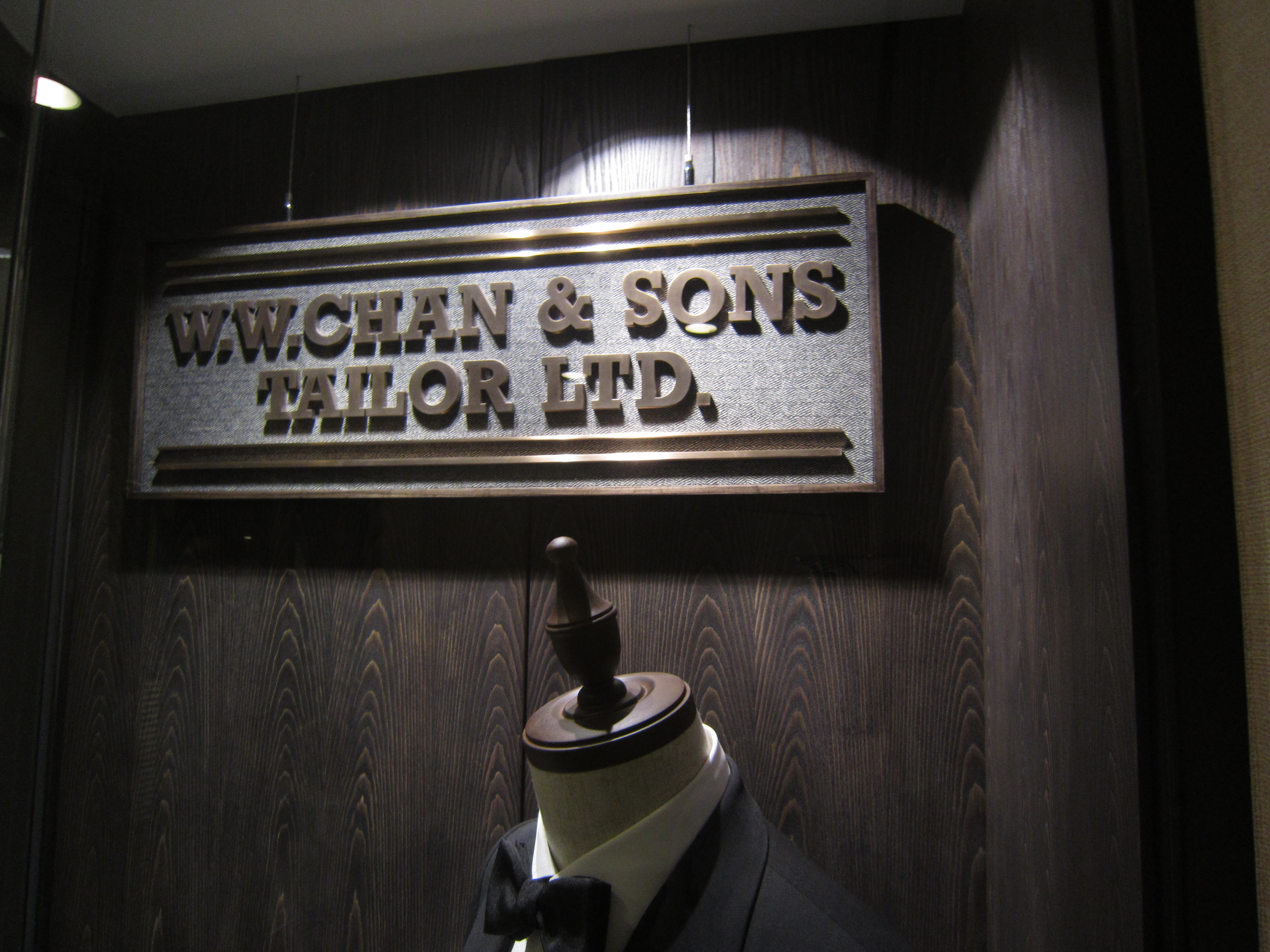 Long before the quick turnaround service of today’s Hong Kong tailors, Shanghai was a port city for the world’s goods, textiles, and nimble suiting apprentices. With traditions gleaned from London, Moscow, Tokyo, these graduated pupils — nicknamed the Red Gang — offered their pastiche aesthetic for customers to acclaim. Such a legacy is upheld in houses like W.W. Chan & Sons, and few others in Hong Kong. W.W. Chan himself graduated from the Shanghai Cutting and Tailoring College, and these lessons have been passed down to Dik.
Long before the quick turnaround service of today’s Hong Kong tailors, Shanghai was a port city for the world’s goods, textiles, and nimble suiting apprentices. With traditions gleaned from London, Moscow, Tokyo, these graduated pupils — nicknamed the Red Gang — offered their pastiche aesthetic for customers to acclaim. Such a legacy is upheld in houses like W.W. Chan & Sons, and few others in Hong Kong. W.W. Chan himself graduated from the Shanghai Cutting and Tailoring College, and these lessons have been passed down to Dik.
“Patrick taught me how to draw the pattern, and he taught me how to change it.”
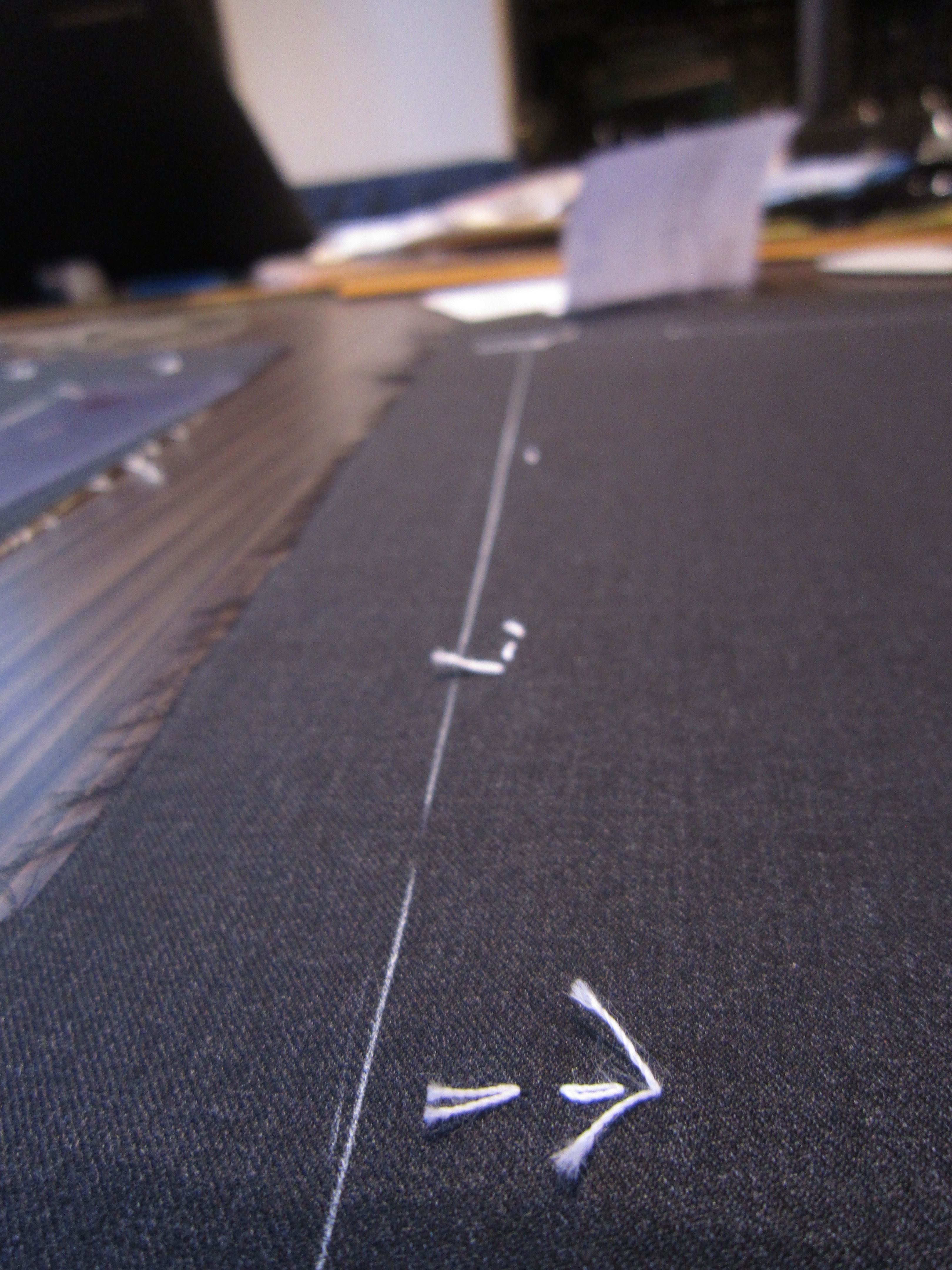 Under the tutelage of manager Patrick Lam, Dik has spent his ten years at W.W. Chan & Sons as a cutter, which is essentially his single role. After precise measurements have been recorded, Dik creates a paper pattern that he sends down the hand-made production line.
Under the tutelage of manager Patrick Lam, Dik has spent his ten years at W.W. Chan & Sons as a cutter, which is essentially his single role. After precise measurements have been recorded, Dik creates a paper pattern that he sends down the hand-made production line.
“I make the paper pattern and we each have our own job.”
“Like a Rolex,” Dik compares, a good suit takes time. If Hong Kong is a microsecond-counting stopwatch, W.W. Chan & Sons is more like the Rolex. Each master and apprentice has his unique role to fill, and together they make the components of a perfectly assembled suit. Like a fine watch, the parts and labor ensure that the suit will last, will age, will evolve.  This is all available if you’re willing to allow the time needed. Time saved my earnings to afford a lifetime suit. Time returned me to Hong Kong from Shenzhen multiple times to finish it in three months. Time lent Dik the opportunity to critique his wool sculpture and continue to learn from his elders. Eventually my gut will give in to time and I will return to W.W. Chan & Sons so I can still enjoy this suit.
This is all available if you’re willing to allow the time needed. Time saved my earnings to afford a lifetime suit. Time returned me to Hong Kong from Shenzhen multiple times to finish it in three months. Time lent Dik the opportunity to critique his wool sculpture and continue to learn from his elders. Eventually my gut will give in to time and I will return to W.W. Chan & Sons so I can still enjoy this suit.
 Twenty-four hour suits are a sexy idea, but they are nothing more than a symptom of our modern impatience. In the age of “instant coffee, instant tea,” we have settled into instant disbelief. We must stop to remind ourselves that instant is fleeting, and a twenty-four hour suit will collect as much dust as remorse when we find it’s only worth five minutes. All the while, Dik measures and remeasures, snips, and forms a paper pattern for a beautiful suit worthy of his forebears. It may take time, but it’s easily worth the while.
Twenty-four hour suits are a sexy idea, but they are nothing more than a symptom of our modern impatience. In the age of “instant coffee, instant tea,” we have settled into instant disbelief. We must stop to remind ourselves that instant is fleeting, and a twenty-four hour suit will collect as much dust as remorse when we find it’s only worth five minutes. All the while, Dik measures and remeasures, snips, and forms a paper pattern for a beautiful suit worthy of his forebears. It may take time, but it’s easily worth the while.
TIMELINE (so far) OF MY SUIT FROM W.W. CHAN & SONS:
